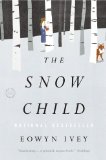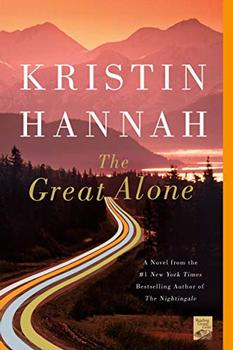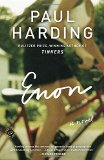Summary | Excerpt | Reading Guide | Reviews | Beyond the book | Read-Alikes | Genres & Themes | Author Bio

A Novel
by Eowyn IveyI must confess: about a third of the way through The Snow Child, I skipped to the end to find out what happens to Faina. Decades of reading behind me and this is the first time I've read an ending out of order. As I read the rest of the book I wondered, what was it about this particular story that pushed me to commit such a sin? I thought about it for days until finally it dawned on me. The novel's emotional suspense hinges on the constant uncertainty of a child's fate - exactly the same anxiety I'm wrestling with as a new mother. Will she live through the night? Will she choke on a strawberry? Will she survive the fall off the jungle gym? Our children crawl, skip, and drive away from us, forever dancing blithely on their tenuous promises of survival. As a mother, I'm learning to tame my nightmares and live squarely in the wild presence of uncertainty, but as a reader, the suspense was unbearable.
Armed with this realization, it was easy to read the rest of The Snow Child as a lovely allegory for parenthood. Even Faina's mysterious provenance, the stuff of fairy-tales and make-believe, scarcely upstages the miracle of cells becoming a child. Mabel wonders "What happened in that cold dark, when frost formed a halo in the child's straw hair and snowflake turned to flesh and bone?... The exact science of one molecule transformed into another - that Mabel could not explain, but then again she couldn't explain how a fetus formed in the womb, cells becoming beating heart and hoping soul." As the mysterious Faina comes and goes, she's a stand-in for any child; hold her too tightly and you'll stifle her spirit. Let her go and you're left, as are Mabel and Jack, to rein in your dark imagination and fortify yourself with trust. And when Faina returns with the seasons, she reminds us that a child returning is never the same child that left. If we mourn too deeply for the sweet-breathed infant, the bonny toddler, the precocious 4-year-old, we fail to fully appreciate the new child that she's constantly becoming.
Obviously, my experience of reading this novel was extremely personal. It touched me deeply in a way that I'm not sure it would have had I not identified so closely with its emotional core. So I feel affection for The Snow Child that belies my disappointment in the novel as a whole. Eowyn Ivey's writing is enchanting, a pure pleasure to read. She fleshes out the landscape with striking and sensuous detail, saddles her characters with palpable pain and then blesses them with fleeting moments of contagious bliss. Every one of them is delightfully likeable, if not loveable. Despite the intimacy of their emotional lives, Ivey keeps her characters at a slight remove, which underscores their fairy-tale underpinnings, making them wistful and sweetly sad, rather than deeply, seriously sorrowful.
Perhaps that emotional distance is the reason The Snow Child fails to be the novel I wanted it to be. At nearly 400 pages, this loose, easy novel billows with pleasures of prose, extra storylines and detail, and it really is a great read. Still, I wonder what kind of power might have emerged had Ivey pared it down to 200 pages, or even smaller. I imagine it stunning, more precise in its grief and, consequently, grimmer. While the framework of the story invited me to examine my own parental emotions, I wanted to see her characters live in the quick of those emotions, to fully feel their gravity, to really confront the terror of loss. If Ivey were not such a talented writer, I might be able to put aside such quibbles, but I believe she's capable of a much finer book. Still, The Snow Child as Eowyn Ivey has written it is beautiful, and I imagine that it will charm almost any reader who is tempted to pick it up. Perhaps knowing where I found it lacking will help you decide if The Snow Child is, indeed, the kind of fairy tale you were hoping for.
Watch author Eowyn Ivey discuss her book and book clubs in the video below:
![]() This review was originally published in The BookBrowse Review in February 2012, and has been updated for the
November 2012 edition.
Click here to go to this issue.
This review was originally published in The BookBrowse Review in February 2012, and has been updated for the
November 2012 edition.
Click here to go to this issue.

If you liked The Snow Child, try these:

by Kristin Hannah
Published 2019
From the author of The Nightingale, comes a story of a family in crisis and a young girl struggling to survive at the edge of the world, in America's last true frontier.

by Paul Harding
Published 2014
A stunning mosaic of human experience, Enon affirms Paul Harding as one of the most gifted and profound writers of his generation.
To be ignorant of what occurred before you were born is to remain always a child
Click Here to find out who said this, as well as discovering other famous literary quotes!
Your guide toexceptional books
BookBrowse seeks out and recommends the best in contemporary fiction and nonfiction—books that not only engage and entertain but also deepen our understanding of ourselves and the world around us.